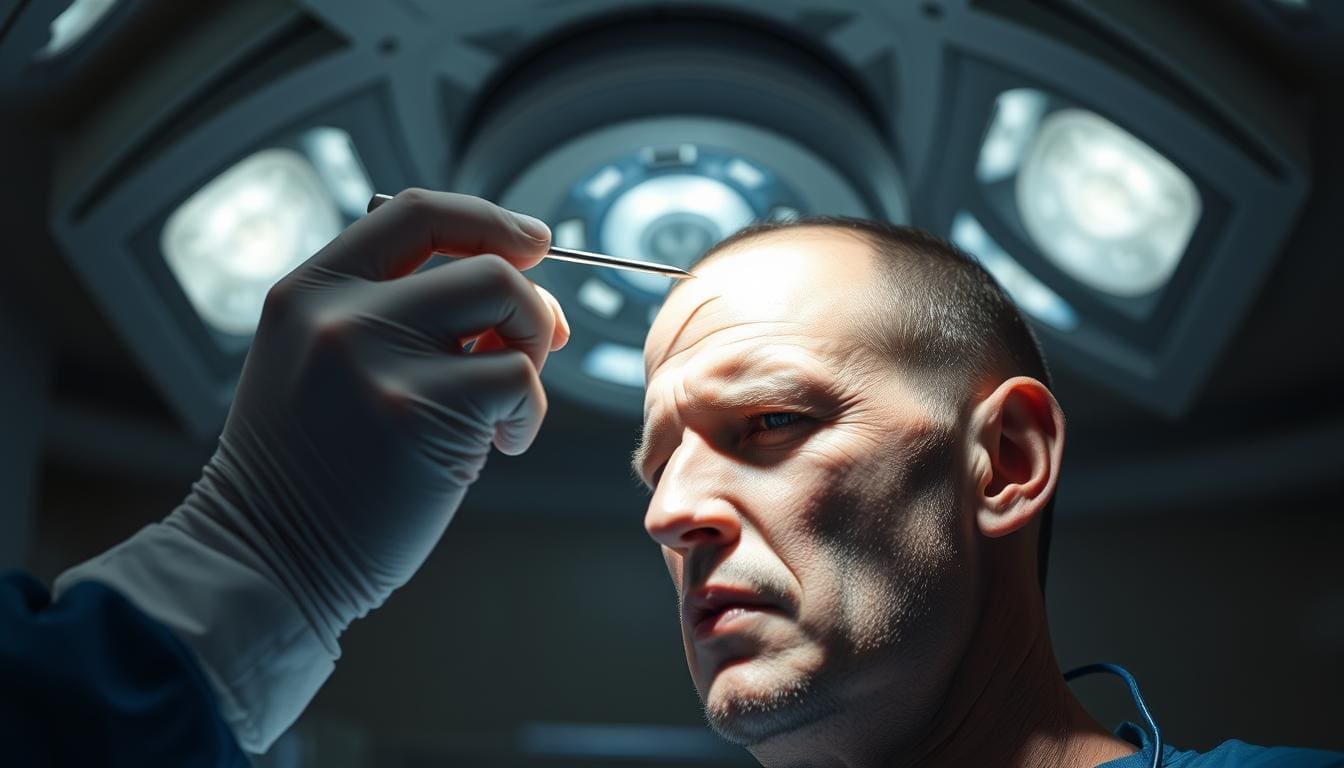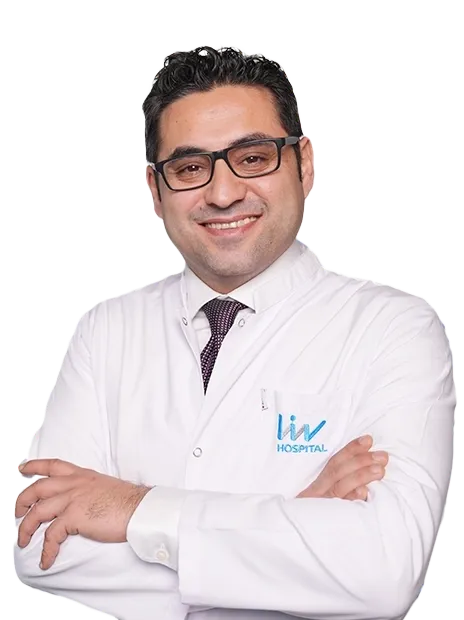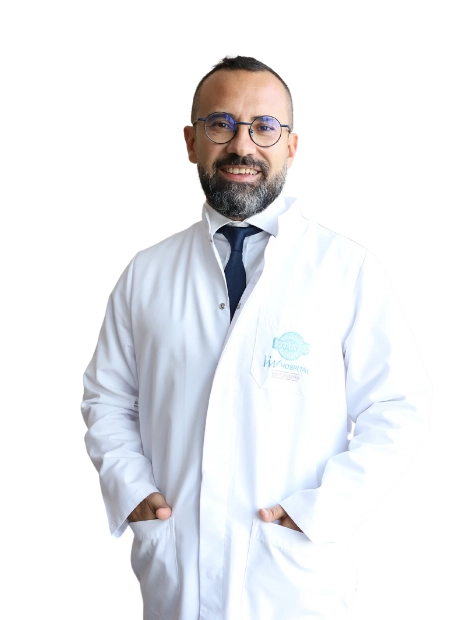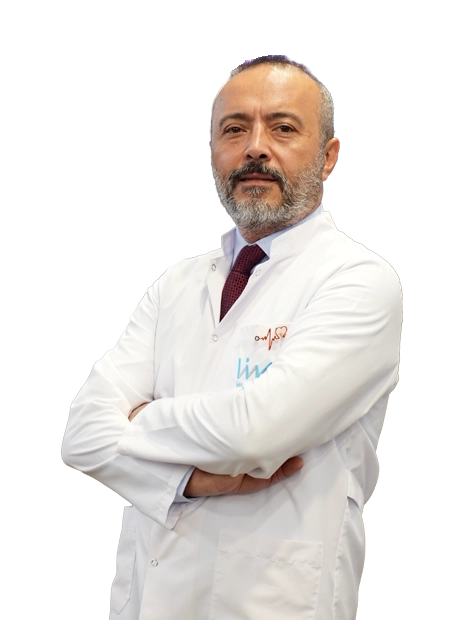
At Liv Hospital, we know that the idea of being awake during brain surgery can be scary. But, our advanced methods and care make sure you’re comfortable and safe during the surgery.
Awake neurosurgery, or awake craniotomy, is done with you awake but feeling no pain thanks to local anesthesia and sedation. Our team follows the latest standards to give you the best care possible.
We focus on making sure you’re comfortable and safe. Our way of doing awake brain surgery aims to manage pain well. This helps address worries about brain surgery pain.
Key Takeaways
- Awake craniotomy is performed under local anesthesia and sedation to minimize pain.
- Liv Hospital follows up-to-date protocols for the best outcomes.
- Our team is dedicated to providing high ethical care and innovative techniques.
- Patients receive comprehensive support throughout the procedure.
- Effective pain management is a priority in our approach to awake neurosurgery.
Understanding Awake Brain Surgery: An Overview
Awake brain surgery is a complex procedure. Patients stay awake and alert. This lets surgeons map brain functions as they go.
This method is key for the best results. It helps keep important brain functions safe.
Definition and Purpose of Awake Craniotomy
Awake craniotomy, or awake brain surgery, is a surgery done while the patient is awake. They are under local anesthesia. The main goal is to map the brain in real-time.
This helps surgeons find and keep safe the most important brain areas. It aims for the best results for patients.
Real-time brain mapping is a big part of awake brain surgery. It lets us check the patient’s brain functions during the surgery. We can then make changes to avoid harming important areas.
When Awake Brain Surgery Is Recommended
Awake brain surgery is often suggested for those needing to keep brain functions safe. This includes people with brain tumors near key brain areas. Being awake lets us watch how the brain reacts and make precise moves to remove the tumor safely.
Awake brain surgery has many benefits. It can lead to better brain function and shorter brain surgery recovery time. Our team at Liv Hospital uses the latest methods for the best treatment and care.
| Condition | Recommendation | Benefits |
|---|---|---|
| Brain tumors near critical areas | Awake brain surgery | Preservation of neurological functions |
| Complex neurological conditions | Minimally invasive brain surgery | Reduced risk of complications, faster recovery |
| Seizure disorders | Awake craniotomy with brain mapping | Improved seizure control, reduced neurological deficits |
Understanding awake brain surgery helps patients see the care and complexity behind these neurosurgical procedures. Our goal is to give the best care. We aim for the best results for those going through these detailed surgeries.
The Science Behind Brain Surgery and Pain Perception
Awake brain surgery shows that the brain doesn’t feel pain. But, the surgery needs careful anesthesia. This is why patients don’t feel pain during awake craniotomy.
Why the Brain Lacks Pain Receptors
The brain is special because it doesn’t have pain receptors. This is key for awake craniotomy surgeries. The brain’s lack of pain receptors lets neurosurgeons work without causing pain.
Key aspects of brain anatomy related to pain perception include:
- The brain’s outer layer, known as the cortex, does not contain pain receptors.
- Pain during brain surgery is typically related to the scalp, meninges, or blood vessels, which are innervated with pain-sensitive nerve fibers.
- Local anesthesia is used to numb these areas, ensuring patient comfort during the procedure.
How Local Anesthesia Works During Neurosurgery
Local anesthesia is crucial in awake brain surgery. It numbs the scalp and other sensitive areas. At our institution, we use advanced techniques to keep patients comfortable.
The process involves:
- Administering local anesthetic to the scalp before making an incision.
- Using additional doses of anesthetic as needed during the surgery to maintain numbness.
- Carefully monitoring the patient’s comfort level and adjusting anesthesia administration accordingly.
By using the brain’s natural lack of pain receptors and local anesthesia, we can do complex surgeries while patients are awake. This makes the surgery safer and more effective.
Is Brain Surgery Painless? The Truth About Sensation During Awake Procedures
Awake craniotomy is a brain surgery done while the patient is awake. It has special features that affect how patients feel. Even though the brain doesn’t feel pain, patients can still feel different sensations.
What Patients Actually Feel During Surgery
Patients in awake brain surgery might feel various sensations. They could feel pressure, vibration, or movement. These feelings are not usually painful but can be uncomfortable or unusual.
Our team at Liv Hospital is ready to handle any discomfort quickly. We make sure patients stay comfortable during the surgery. We use the latest methods and medicines to reduce any distressing sensations.
Common Sensations: Pressure, Vibration, and Movement
Some common feelings during awake brain surgery include:
- Pressure: Patients might feel pressure on their skull or brain area.
- Vibration: The tools used can cause a vibrating feeling.
- Movement: Patients might feel movement or twitching, especially if the surgery is near motor control areas.
Our surgical team closely watches these sensations. They take all steps to keep patients comfortable. Knowing what to expect helps patients prepare better for the surgery.
In summary, while brain surgery isn’t completely painless, the feelings during awake procedures are usually manageable. Our main goal is to make sure patients have as little discomfort as possible. We use the latest medical techniques and care with compassion.
Preparing for Awake Brain Surgery
At Liv Hospital, we help our patients get ready for awake brain surgery. We cover both the medical and emotional sides. This detailed preparation is key for a good surgery and easy recovery.
Medical Evaluations and Testing
Before awake brain surgery, patients get many medical checks. These include neurological exams and imaging studies like MRI or CT scans. We also do other tests to check health and brain function.
Our team looks at patients’ medical history and current health. We talk about any risks of brain surgery they might face.
Mental and Emotional Preparation
Getting ready mentally and emotionally is just as important. We know brain surgery can be scary. Our team is here to support and guide you.
We explain the surgery in detail. We tell you what to expect during and after. We also talk about post-operative care for brain surgery to help with recovery. This way, we help our patients feel ready and clear about their surgery.
Our team works together to give our patients the best care. From the first meeting to after the surgery, we’re with you. Together, we aim for the best results for our patients.
The Awake Craniotomy Procedure: Step by Step
The awake craniotomy procedure has several stages, from sedation to brain mapping. It’s a complex operation that needs precision and care. This ensures the best results for patients.
Initial Sedation and Positioning
The first step is giving initial sedation to relax the patient. Then, we position them on the table for the neurosurgeon’s access.
Proper positioning is key for a successful procedure. It helps avoid complications and ensures the best outcomes.
The Awakening Process
After sedation, the patient is slowly woken up. This is for brain mapping and testing. It’s vital to protect brain areas that control important functions.
Our neurosurgeons and anesthesiologists watch the patient closely. They make sure the patient is comfortable and safe during this time.
Brain Mapping and Functional Testing
Brain mapping is a critical part of the procedure. It helps identify and protect brain areas for speech, movement, and sensation.
The patient does tasks to help map the brain. This information guides the surgery, reducing the risk of damage.
Brain mapping and testing make the surgery more effective. At Liv Hospital, we use the latest methods. This improves neurosurgical procedure effectiveness and shortens brain surgery recovery time.
| Stage | Description | Key Elements |
|---|---|---|
| Initial Sedation and Positioning | Administering sedation and positioning the patient | Sedation, patient positioning |
| The Awakening Process | Gradually awakening the patient | Vital sign monitoring, neurological responses |
| Brain Mapping and Functional Testing | Identifying and preserving critical brain areas | Brain mapping, functional testing, task performance |
Pain Management Techniques During Awake Neurosurgery
Managing pain during awake neurosurgery is complex. It involves using medications and sedation. At Liv Hospital, we focus on making patients comfortable and safe. We use a variety of methods to manage pain.
Medications and Sedation Protocols
We use different medications and sedation methods to keep patients comfortable. The type and amount of medication depend on the patient’s needs and medical history.
Common Medications Used:
- Local anesthetics to numb the scalp and surgical site
- Sedatives to help patients relax
- Analgesics to manage pain
| Medication Type | Purpose | Administration Timing |
|---|---|---|
| Local Anesthetics | Numb the scalp and surgical site | Before incision |
| Sedatives | Relax the patient | During procedure as needed |
| Analgesics | Manage pain | During and after procedure |
Addressing Discomfort During the Procedure
Even with our best efforts, some patients may still feel discomfort. We listen to patient feedback and adjust our pain management as needed.
We combine advanced pain management with caring for our patients. Our goal is to make awake neurosurgery as comfortable as possible for them.
Minimally Invasive Brain Surgery Approaches
Minimally invasive brain surgery has greatly improved patient care. It causes less damage to tissues and helps patients heal faster. At Liv Hospital, we use these advanced methods to make neurosurgery less invasive. This improves patient results.
Advanced Techniques for Reducing Invasiveness
We use several modern methods to make brain surgery less invasive. These include:
- Endoscopic Surgery: This uses small cuts and a camera to see inside, needing fewer big openings.
- Keyhole Surgery: It makes small holes in the skull to reach the brain, causing less damage.
- Laser Interstitial Thermal Therapy (LITT): This uses laser heat to kill specific brain cells, often for tumors.
These methods not only reduce damage but also lead to shorter hospital stays and quicker recovery. A recent case showed a patient playing the clarinet during deep brain stimulation surgery. This highlights how these techniques can make surgery more comfortable for patients (source).
Benefits of Minimally Invasive Neurosurgery
Minimally invasive brain surgery has many benefits. It lowers the risk of complications, reduces pain after surgery, and allows for quicker return to daily activities. Here are some key advantages:
| Benefit | Description |
|---|---|
| Reduced Tissue Damage | Smaller cuts mean less damage to tissues. |
| Less Post-Operative Pain | These procedures often cause less pain. |
| Shorter Hospital Stays | Patients usually recover faster and leave the hospital sooner. |
By using these advanced techniques, we greatly enhance the success of neurosurgery. This ensures our patients get the best care possible. Our dedication to neurosurgical innovation means we provide top-notch care to our international patients.
Recovery and Post-Operative Care After Brain Surgery
After brain surgery, the right care is key for a good recovery. At Liv Hospital, we focus on giving our patients the best care. Our team is here to support and watch over you every step of the way.
Immediate Post-Operative Period
The first days after surgery are very important. Close monitoring helps catch any problems early. Patients usually go to the ICU for close watch. There, we keep an eye on their health and manage pain well.
Hospital Stay Duration
How long you stay in the hospital depends on your surgery and health. On average, it’s a few days to a week. Our team is always there, giving you the care you need to heal well.
Long-Term Recovery Timeline and Care Requirements
Recovering from brain surgery takes time. Some people need ongoing care and therapy. Rehabilitation programs are made just for you, to help you get stronger and improve your thinking. We help you and your family with the support you need.
Knowing what to expect after brain surgery is important. We aim to give you the best care and help you live a better life.
Benefits of Awake Brain Surgery vs. Traditional Approaches
Awake brain surgery has changed neurosurgery for the better. At Liv Hospital, we’ve seen its positive effects on patients. It’s a game-changer.
Improved Neurological Outcomes
Awake brain surgery can lead to improved neurological outcomes. Patients stay awake, allowing our team to watch brain function closely. This way, we can avoid harming important areas.
This approach helps keep more of the brain working well. It means better quality of life after surgery.
Reduced Hospital Stays and Recovery Time
Awake brain surgery means reduced hospital stays and recovery time. It’s less invasive, so patients heal faster. They can go home sooner and get back to their lives quicker.
Enhanced Tumor Removal with Functional Preservation
Another big plus is enhanced tumor removal with less harm to the brain. Our surgeons can see the brain’s functions live. This lets them remove tumors more accurately and safely.
Choosing awake brain surgery means better results and a quicker recovery. It’s a step up in neurosurgery.
Potential Risks and Complications of Brain Surgery
It’s important to know the risks and complications of brain surgery before making a decision. Brain surgery is usually safe, but there are risks patients should be aware of.
Surgical Complications
Complications can happen during or after brain surgery. These might include infection, bleeding, or bad reactions to anesthesia. Liv Hospital uses advanced methods and careful patient care to reduce these risks.
Some specific complications of brain surgery are:
- Infection at the surgical site
- Bleeding or hematoma
- Stroke or cerebral vasospasm
- Seizures
- Adverse reactions to anesthesia
| Surgical Complication | Description | Management Strategy |
|---|---|---|
| Infection | Bacterial or viral infection at the surgical site | Prophylactic antibiotics, wound care |
| Bleeding | Hemorrhage or hematoma during or after surgery | Hemostatic agents, surgical revision |
| Stroke | Cerebral vasospasm or thrombosis | Nimodipine, anticoagulation therapy |
Psychological Effects and Management
Brain surgery can also affect a patient’s mind, causing anxiety, depression, or changes in thinking. Liv Hospital’s team focuses on both physical and mental recovery.
We use different ways to handle these effects, such as:
- Counseling and psychological support
- Cognitive rehabilitation programs
- Family support and education
Minimizing Risks Through Advanced Protocols
At Liv Hospital, we use the latest technology and protocols to lower brain surgery risks. Our team works together to give each patient the best care.
Some of our advanced methods include:
- Intraoperative MRI and neuromonitoring
- Advanced imaging for planning
- Minimally invasive surgery
By using these advanced methods and careful patient care, we can lessen brain surgery risks and improve results.
Conclusion: What to Expect From Modern Awake Brain Surgery
Modern awake brain surgery has changed neurosurgery a lot. It’s safe and effective, with less pain and faster recovery. At Liv Hospital, we’ve seen its benefits. It lets us remove tumors carefully without harming important brain functions.
Many wonder if brain surgery hurts. The brain doesn’t feel pain, but patients might feel pressure or vibration. But, with local anesthesia and new pain control methods, the pain is much less. This makes the surgery easier to handle.
Awake craniotomy shows great results, like better brain function and shorter hospital stays. We use the latest technology and skills to give our patients the best care. This way, we get great results with less harm.
We keep improving in neurosurgery and aim to give top-notch healthcare. Our team is ready to help international patients with care tailored just for them. We make sure every patient gets the best treatment and support on their journey.
Is brain surgery painful?
The brain itself doesn’t have pain receptors, so patients usually don’t feel pain during surgery. But, they might feel pressure or vibrations. At Liv Hospital, we use local anesthesia and sedation to keep patients comfortable.
What is awake brain surgery?
Awake brain surgery, or awake craniotomy, is when the patient stays awake during surgery. This lets us map the brain in real-time. It helps us get better results and protect important brain functions.
How is pain managed during awake brain surgery?
We mix local anesthesia and sedation to handle pain and discomfort during awake brain surgery. Our team works hard to make sure patients are comfortable during the whole procedure.
What are the benefits of awake brain surgery?
Awake brain surgery has many benefits. It can lead to better outcomes, shorter hospital stays, and more effective tumor removal. Our team at Liv Hospital is skilled in awake brain surgery to give the best treatment.
What can patients expect during the recovery process?
After surgery, patients need careful care. At Liv Hospital, we offer full support from the start of recovery to long-term follow-up. Our team is here to help every step of the way.
Are there any risks or complications associated with brain surgery?
Brain surgery is usually safe, but there can be risks. At Liv Hospital, we use advanced methods and careful management to reduce these risks.
How long does it take to recover from brain surgery?
Recovery time varies based on the surgery and the person. Our team at Liv Hospital will create a recovery plan just for you. We support you every step of the way.
What is minimally invasive brain surgery?
Minimally invasive brain surgery uses new techniques to make the procedure less invasive. This reduces tissue damage and helps patients recover faster. At Liv Hospital, we use these methods to bring you the latest in neurosurgery.
How is the brain mapped during awake brain surgery?
During awake brain surgery, our neurosurgeons map the brain in real-time. This helps us find important areas and protect them. It’s a key part of the surgery.
What kind of anesthesia is used during brain surgery?
We use local anesthesia to numb the scalp and surgery area. Sedation helps patients relax during the procedure.
References
Wiley Online Library (Academic Journal): Study on Tumor Removal and Quality of Life After Awake Surgery (Specific DOI)


































